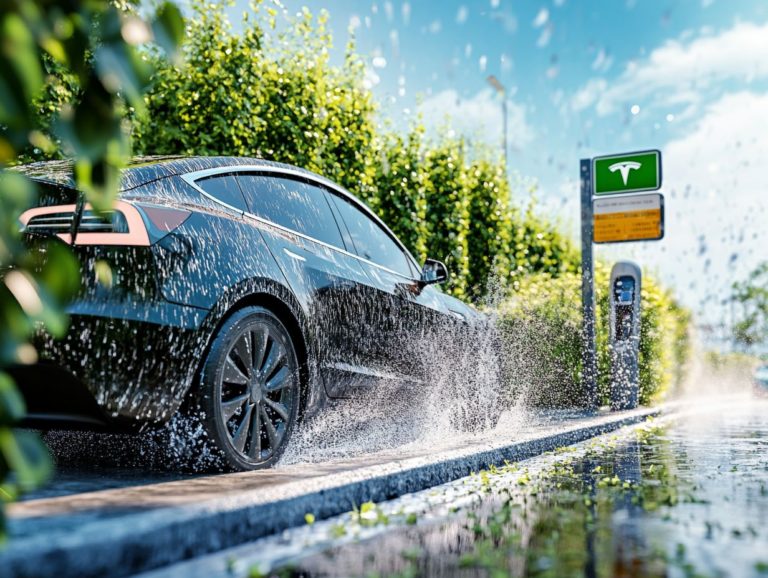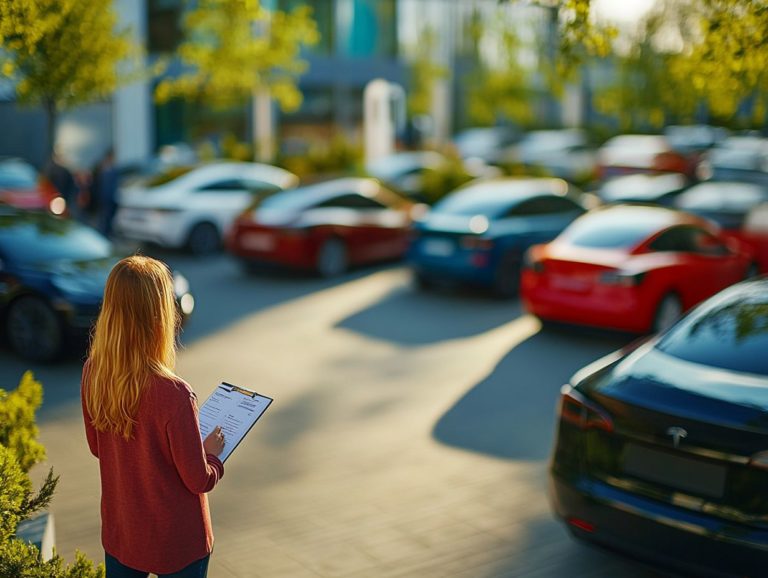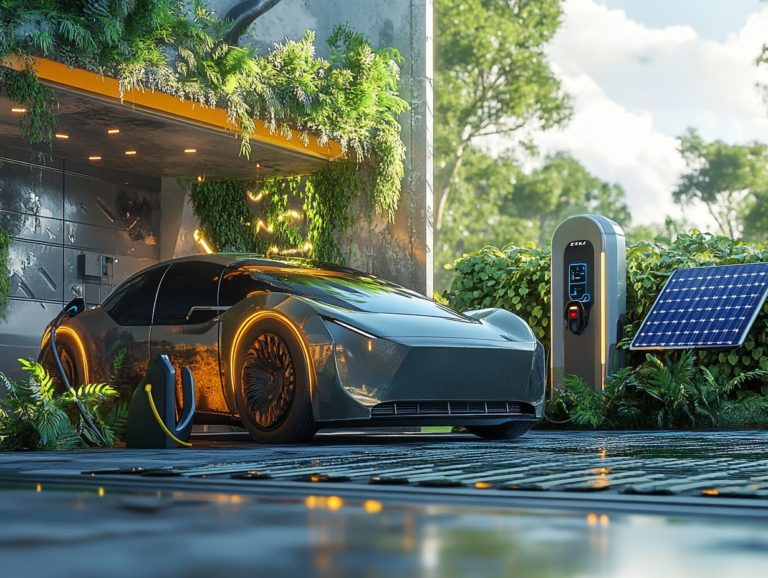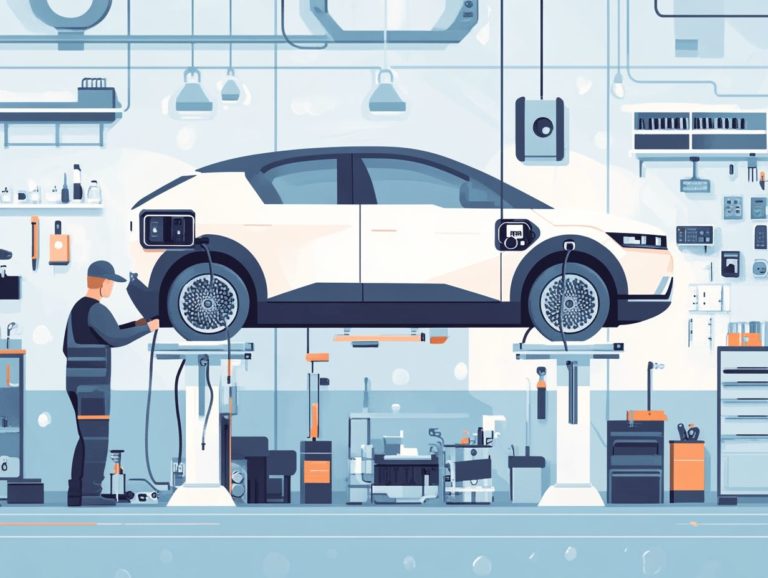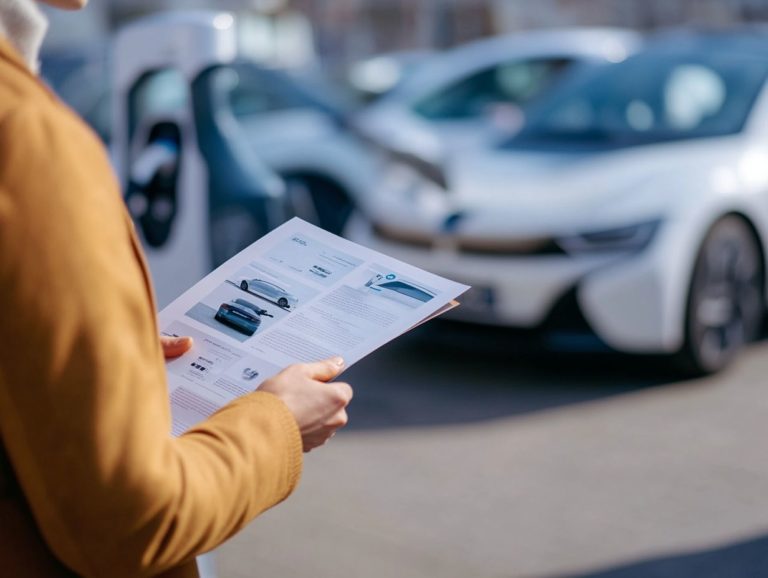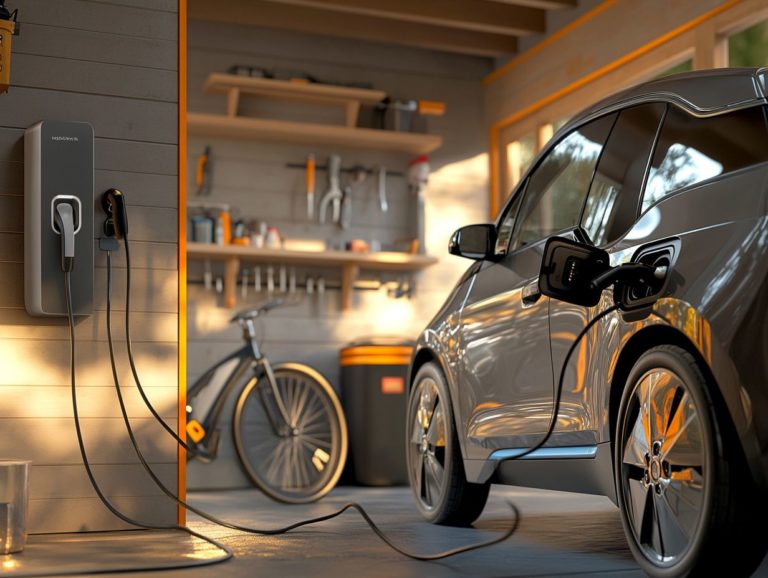What Is the Best Time to Charge an Electric Vehicle?
As electric vehicles (EVs) surge in popularity, grasping the nuances of charging becomes vital for both newcomers and experienced drivers alike.
This article delves into the different types of electric vehicle charging, emphasizing the significance of charging time and the various factors that can affect it.
Whether you re plugging in at home or utilizing public charging stations, understanding the optimal times for charging can boost your efficiency and help you save on costs.
We ll also explore upcoming advancements in charging technologies and their potential implications for the future.
Get ready to elevate your EV expertise!
Contents
- Key Takeaways:
- Types of Electric Vehicle Charging
- Unlock Charging Secrets
- Optimal Charging Times for Different Situations
- Maximizing Efficiency and Cost Savings
- Future Developments in EV Charging
- Frequently Asked Questions
- What is the best time to charge an electric vehicle?
- Why is charging an electric vehicle during off-peak hours recommended?
- Can I charge my electric vehicle during peak hours?
- Are there any benefits to charging an electric vehicle during peak hours?
- Does the time of day affect the speed of charging an electric vehicle?
- How can I find out my electricity provider’s peak and off-peak hours?
Key Takeaways:

- Charge your electric vehicle during off-peak hours to save time and money.
- Charging time varies based on battery size and charging location.
- Follow best practices to maximize efficiency and cost savings.
Types of Electric Vehicle Charging
Electric vehicle charging offers an array of options tailored to your needs, from residential setups to public charging stations and specialized DC fast chargers. Each charging solution is meticulously designed to enhance the efficiency and longevity of lithium-ion batteries, giving power to your electric or hybrid vehicle to maintain optimal range and performance.
Whether you’re navigating your daily commute or embarking on a long journey, these charging options cater to your every requirement seamlessly.
Unlock Charging Secrets
Charging time plays a pivotal role in the usability of electric vehicles (EVs). It significantly influences your ability to meet daily commuting demands and overall driving efficiency.
Adopting the right charging strategy such as understanding peak and off-peak electricity pricing can optimize your charging process. This enhances battery longevity and minimizes degradation. This not only gives you power to plan your travel more effectively but also alleviates the stress of potential battery depletion during your journeys.
Factors Affecting Charging Time
Several factors significantly influence your electric vehicle’s charging time, including the type of charging station you use, your vehicle’s battery management system a system that monitors and regulates how your battery charges to keep it healthy and the energy grid’s demand during peak hours.
Understanding these variables can give you the power to make informed decisions, optimizing your EV charging experience and ensuring you have ample power for your daily commutes while also taking care of your battery’s health.
The type of charging station you choose plays a crucial role. Level 1 chargers, while the slowest, are perfect for overnight charging at home. On the other hand, DC fast chargers can dramatically cut your charging time down to mere minutes, making them ideal for quick pit stops on longer journeys.
Your battery management system is equally vital, as it regulates the charging process to protect your battery’s lifespan and efficiency. Also, be aware of time-of-use tariffs, which can affect the cost of electricity based on the time of day. Charging during off-peak hours can help you save money and maximize efficiency, making your electric vehicle experience even more rewarding.
Optimal Charging Times for Different Situations
Identifying the best charging times is crucial for electric vehicle owners who want to enhance battery efficiency and keep costs in check, whether charging at home or at public stations.
By taking advantage of time-of-use tariffs, you can thoughtfully schedule your charging sessions during off-peak hours. This not only boosts your EV’s performance but also lowers your overall expenses associated with electricity rates and battery wear.
Ready to power up your EV knowledge? Start charging smarter today!
Home Charging
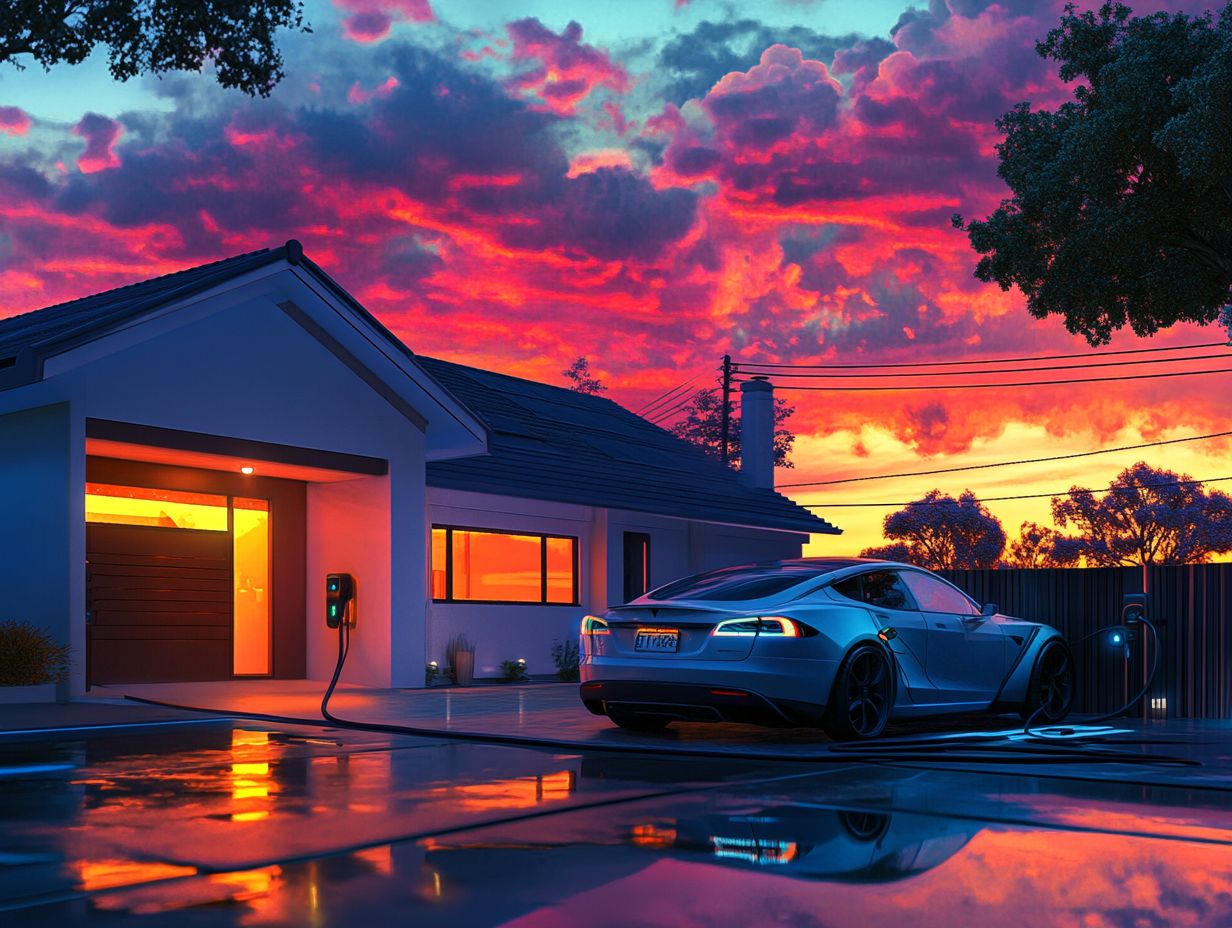
Home charging is a convenient way to power your electric vehicle. Smart chargers help you optimize energy efficiency based on your daily routines and energy tariffs.
By scheduling your charging times during off-peak hours, you can save money and extend the life of the battery that powers your car. Plus, your EV will be ready for your daily commute.
This approach improves your charging experience and reduces strain on the electrical grid during peak times.
There are various home chargers available, including level 1 and level 2 options, each offering unique functionalities to meet your needs. Level 2 chargers provide faster charging times, making them ideal for households with multiple vehicles.
By using smart charging systems, you can enhance efficiency even further. Mobile applications offer real-time energy pricing, ensuring you stay economical and environmentally conscious.
Public Charging
Public charging stations are essential for electric vehicle owners! They make long journeys and daily commutes easier. With quick chargers, you can get back on the road quickly!
The range of charging stations from level 2 chargers to quick options greatly enhances the convenience of owning an electric vehicle. This makes spontaneous road trips or daily commutes entirely feasible.
This extensive network of public charging stations ensures smooth travel and supports your commitment to sustainable transportation solutions. The ongoing expansion of charging networks, supported by regulations, makes these facilities accessible to a diverse consumer base.
Maximizing Efficiency and Cost Savings
Maximizing efficiency and cost savings while charging electric vehicles is crucial for both environmental benefits and financial viability. By adopting best practices in your charging habits like utilizing time-of-use tariffs and selecting charging stations wisely you can significantly lower costs.
This not only protects your wallet but also keeps your vehicle’s performance and battery health optimal over time.
Best Practices for Charging
Implementing best practices for charging your electric vehicle can enhance battery longevity and efficiency. This lets you meet daily driving needs with ease and minimal stress.
Strategies include regularly monitoring your battery cycles, using smart chargers, and charging during off-peak hours to take advantage of lower electricity rates.
For instance, charging to only 80% capacity instead of a full 100% can greatly reduce wear and tear on the battery. Setting reminders or scheduling your charging sessions overnight can also help minimize exposure to extreme temperatures that harm battery health.
Utilizing regenerative braking while driving can further extend your battery’s life by replenishing energy on the go. Platforms like ChargePoint provide insights into local charging station availability and optimal charging intervals, helping you plan ahead and keep your vehicle charged without excessive costs.
Cost Comparison of Different Charging Times
A cost comparison of different charging times unveils significant savings opportunities for electric vehicle owners, especially when you charge during off-peak hours. By grasping energy tariffs and their associated costs, you can empower yourself to make informed choices that not only save you money but also promote energy efficiency and battery health.
For example, charging at night when electricity rates dip can substantially reduce your expenses compared to charging during the day when rates are typically higher.
Utilizing smart charging technologies allows you to schedule your charging sessions to align with these lower tariff periods. This strategic approach not only cuts costs but also contributes to the longevity of your battery.
By comparing various charging methods like home charging versus public charging stations you can determine which option offers the most economical and convenient solution for your needs.
Ultimately, a thorough understanding of these dynamics enables you to optimize your charging strategies effectively, enhancing both your experience and your savings.
Future Developments in EV Charging
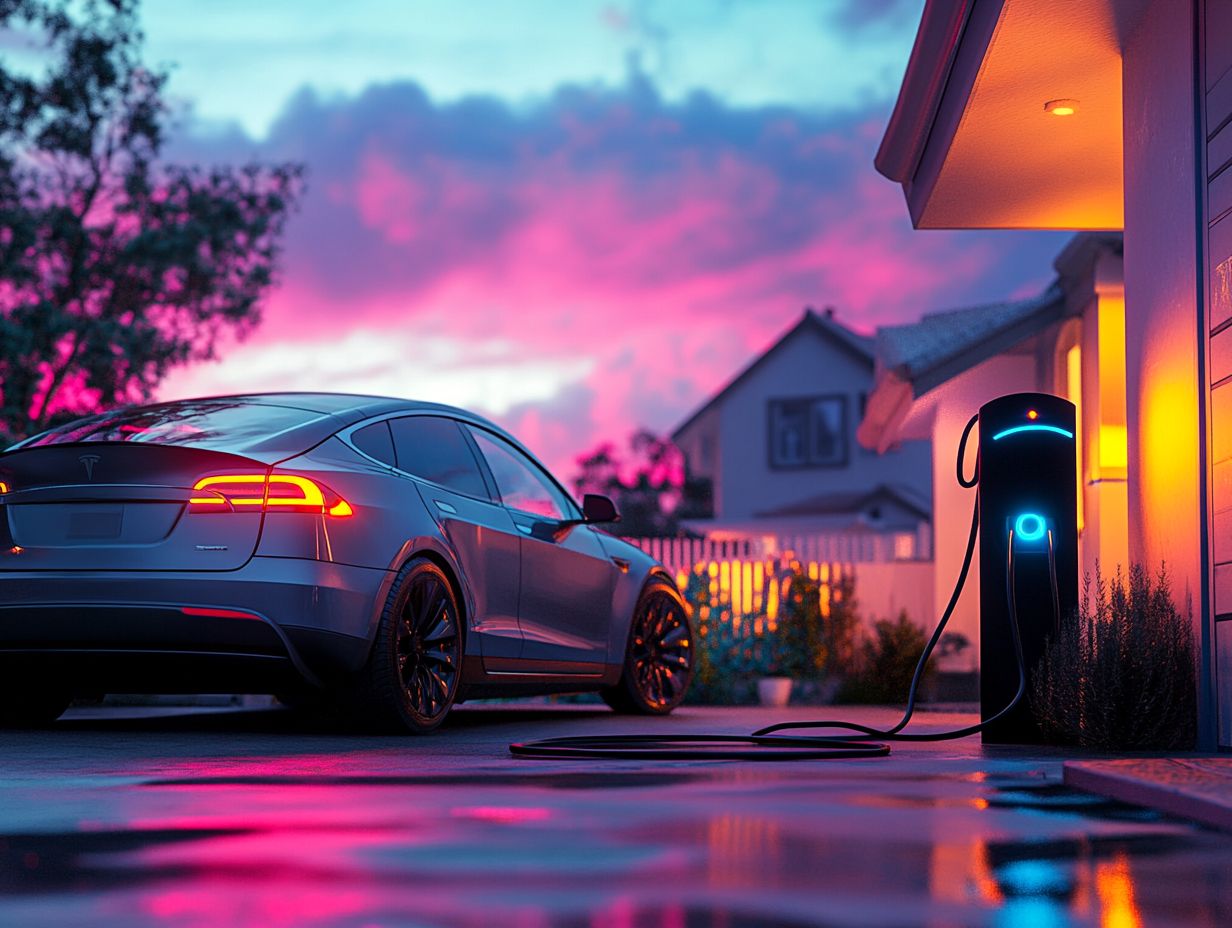
Future developments in electric vehicle charging technology are poised to bring remarkable advancements in efficiency, user experience, and battery management systems.
You can expect innovations like faster charging solutions, improved energy tariffs, and the seamless integration of smart chargers into both residential and public infrastructures.
These changes will revolutionize the way you charge your EV, making it not only more convenient and cost-effective but also enhancing the overall longevity and performance of your battery.
New Technologies and Solutions
New technologies and solutions in electric vehicle charging are evolving at a fast pace, offering you innovative ways to enhance both the charging experience and efficiency.
Picture advanced smart chargers that seamlessly communicate with the energy grid, or state-of-the-art DC fast chargers that slash charging times significantly. These innovations are truly transforming the landscape of electric transportation.
Take, for example, the rise of wireless charging technology. This allows you to charge your vehicle without any physical connections, potentially streamlining your user experience to a remarkable degree.
Meanwhile, vehicle-to-grid (V2G) systems enable your electric vehicle to send energy back to the power grid during peak demand, all while supporting grid stabilization.
These advancements will make your life easier as a driver and play a crucial role in fostering a more sustainable energy ecosystem. By optimizing resource use and reducing reliance on fossil fuels, they pave the way for a greener future. As these technologies become commonplace, they’re setting the stage for a more integrated, efficient, and eco-friendly future in electric mobility.
Impact on Charging Time
The impact of new technologies on charging time for electric vehicles is truly transformative, as advancements in battery management systems and charging infrastructure significantly reduce the time you need to recharge. This leap forward not only enhances the efficiency and convenience of owning an EV but also elevates your overall experience, empowering you to get the most out of your vehicle’s performance.
For example, fast-charging solutions using DC technology can now deliver a substantial charge in just 15 to 30 minutes, revolutionizing long-distance travel for you and other EV users.
Research from the International Energy Agency highlights that these advancements are helping to create a growing network of ultra-rapid charging stations, popping up not just in urban centers but also along highways.
Smart charging provides real-time data on charger availability and power levels, making the whole process even smoother for you.
Clearly, the evolution of charging technology is set to reshape how you and others approach EV ownership, alleviating range anxiety and encouraging more widespread adoption of electric vehicles.
Frequently Asked Questions
As electric vehicle technology continues to advance, staying informed is crucial. Explore the latest trends, and consider upgrading your charging solutions for a more efficient and sustainable future.
What is the best time to charge an electric vehicle?
The best time to charge an electric vehicle is during off-peak hours (when electricity demand is low), typically at night. This saves you money on your electricity bill and lessens the strain on the power grid.
Why is charging an electric vehicle during off-peak hours recommended?
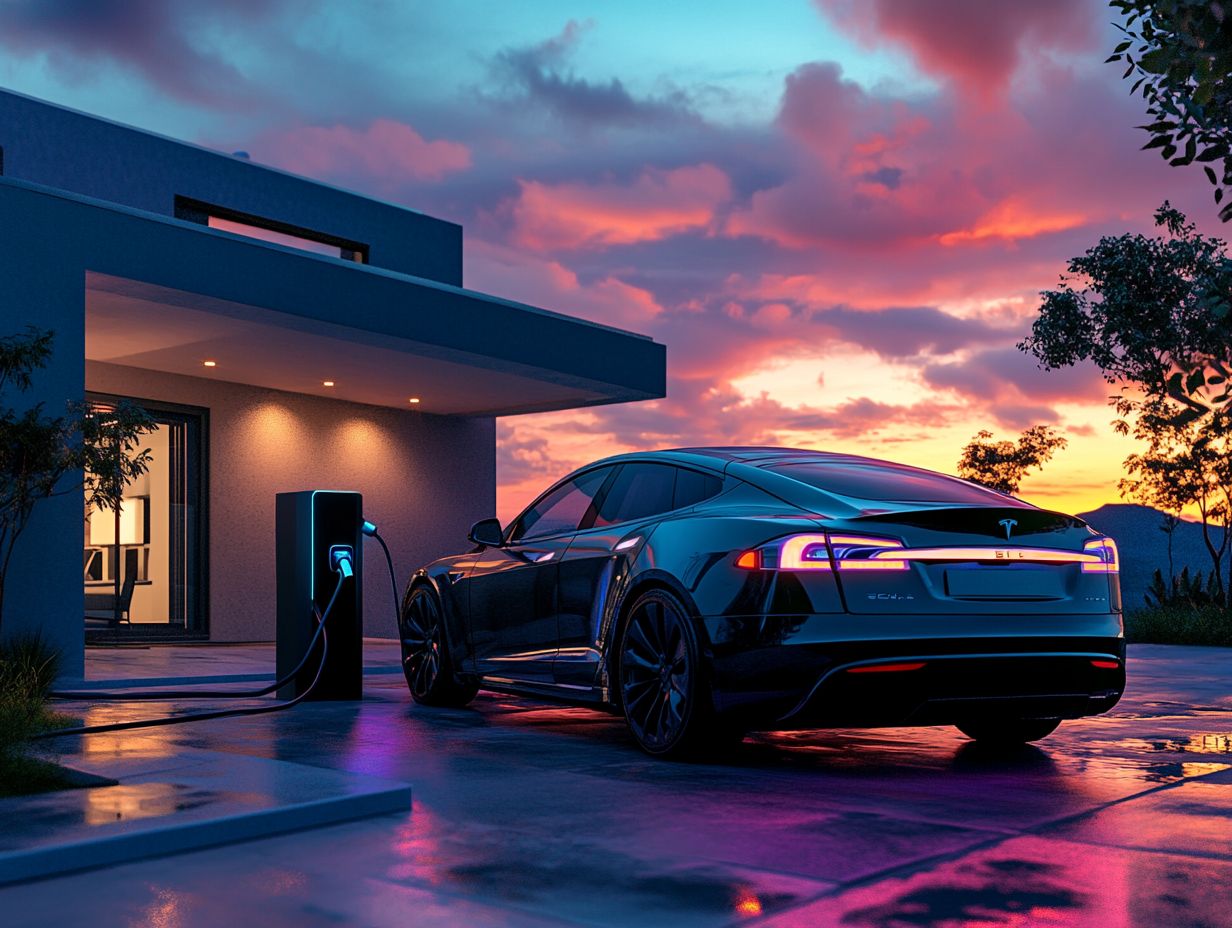
Charging during off-peak hours balances electricity demand throughout the day. It also enables better use of renewable energy, which is more available during these times.
Can I charge my electric vehicle during peak hours?
Charging during peak hours isn t recommended, but it s possible. You might face higher electricity bills and contribute to grid stress.
Are there any benefits to charging an electric vehicle during peak hours?
Charging during peak hours can be more convenient for some people. Some electricity providers even offer discounted rates for charging at specific peak times.
Does the time of day affect the speed of charging an electric vehicle?
Yes, charging speed can vary by time of day. During peak hours, charging may be slower due to high demand, while off-peak hours often allow for faster charging.
How can I find out my electricity provider’s peak and off-peak hours?
Check your electricity bill or call your provider for details. They can give you specific peak and off-peak hours based on your location.

